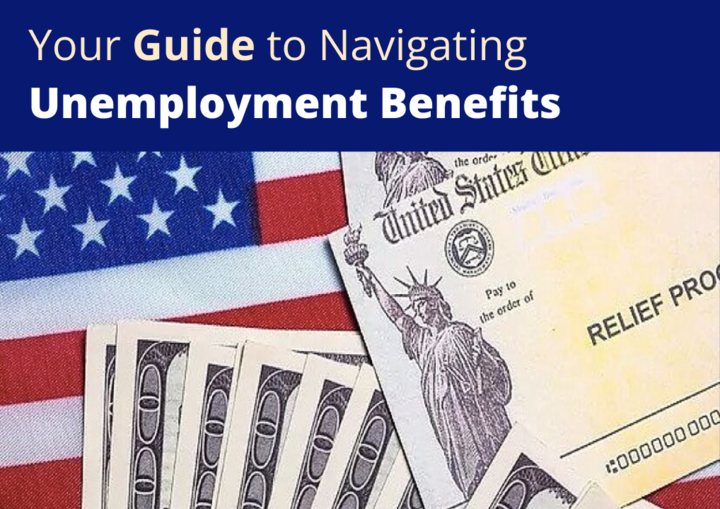Travel credit cards are specialized financial tools designed to reward cardholders for their travel-related expenditures. Unlike standard credit cards, these cards offer unique benefits tailored to frequent travelers, such as earning points or miles for every dollar spent, which can be redeemed for flights, hotel stays, and other travel-related expenses. The fundamental appeal of travel credit cards lies in their ability to transform everyday spending into valuable travel rewards, making them an attractive option for those who enjoy exploring new destinations.
At their core, travel credit cards operate on a points or miles system. Each time a cardholder makes a purchase, they earn points that accumulate over time. These points can often be redeemed for various travel-related rewards, including airline tickets, hotel accommodations, car rentals, and even experiences like guided tours or dining.
Additionally, many travel credit cards come with sign-up bonuses that can significantly boost a cardholder’s rewards balance right from the start. Understanding the mechanics of how these cards work is crucial for anyone looking to leverage them effectively for their travel aspirations.
Key Takeaways
- Travel credit cards offer rewards and benefits for travel-related expenses
- Consider your travel habits and spending patterns when choosing a travel credit card
- Take advantage of sign-up bonuses to maximize your rewards
- Use points for travel expenses such as flights, hotels, and rental cars
- Be aware of common fees and pitfalls to avoid when using a travel credit card
Choosing the Right Travel Credit Card for Your Needs
Selecting the right travel credit card requires careful consideration of individual spending habits and travel preferences. Different cards cater to various types of travelers, whether they are frequent flyers, occasional vacationers, or business travelers. For instance, some cards are affiliated with specific airlines or hotel chains, offering enhanced rewards for purchases made within those ecosystems.
If a traveler frequently flies with a particular airline, a co-branded airline credit card may provide the best value through bonus miles and priority boarding options. Moreover, it is essential to evaluate the card’s annual fee in relation to the benefits it offers. Some travel credit cards come with hefty fees but provide extensive perks such as airport lounge access, travel insurance, and no foreign transaction fees.
On the other hand, there are no-annual-fee options that still offer competitive rewards but may lack some of the premium benefits. A thorough analysis of personal travel habits—such as preferred airlines, hotel chains, and spending patterns—will help in identifying a card that aligns with one’s lifestyle and maximizes potential rewards.
Maximizing Your Rewards through Sign-Up Bonuses
One of the most enticing features of travel credit cards is the sign-up bonus, which can significantly enhance a cardholder’s rewards balance shortly after opening an account. These bonuses typically require cardholders to meet a minimum spending threshold within a specified timeframe—often three months.
For example, a card might offer 50,000 bonus points after spending $3,000 in the first three months.
This initial influx of points can be enough for a round-trip flight or several nights at a hotel, making it a powerful incentive for new applicants. To maximize the benefits of sign-up bonuses, strategic planning is essential. Cardholders should consider their upcoming expenses and align them with the spending requirements of the card.
For instance, if a significant purchase is on the horizon—such as home renovations or holiday shopping—using the new travel credit card for these expenses can help meet the threshold without altering spending habits drastically. Additionally, some savvy travelers may choose to apply for multiple cards in succession to take advantage of various sign-up bonuses, provided they manage their credit responsibly and avoid excessive debt.
Earning and Redeeming Points for Travel
Earning points with travel credit cards is typically straightforward; however, understanding how to maximize point accumulation can lead to substantial rewards over time. Many cards offer bonus categories that provide higher point multipliers for specific types of purchases. For example, a card might offer 3x points on dining and 2x points on travel-related expenses.
By strategically using the card for purchases that fall within these categories, cardholders can accelerate their point earnings significantly. When it comes to redeeming points, travelers should be aware that not all redemption options are created equal. Many travel credit cards allow points to be transferred to airline and hotel loyalty programs, often at favorable rates.
This transfer can unlock greater value than redeeming points directly through the card issuer’s portal.
For instance, transferring points to an airline’s frequent flyer program may yield enough miles for an international flight that would otherwise require more points if booked through the credit card’s own rewards system. Understanding these nuances can empower travelers to make informed decisions that maximize their rewards.
Making the Most of Travel Benefits and Perks
Beyond earning and redeeming points, many travel credit cards come with an array of benefits and perks designed to enhance the travel experience. These can include complimentary travel insurance, rental car insurance, lost luggage reimbursement, and access to airport lounges. For frequent travelers, these benefits can add significant value and peace of mind during their journeys.
For example, having rental car insurance included with a credit card can save travelers from purchasing additional coverage at rental agencies. Additionally, some cards offer unique perks such as priority boarding or free checked bags on flights booked through specific airlines. These benefits not only enhance convenience but can also lead to substantial savings over time.
Travelers should familiarize themselves with all the perks associated with their card and utilize them whenever possible to maximize their overall travel experience. Keeping track of expiration dates for benefits like lounge access or complimentary nights at hotels is also crucial to ensure that these valuable perks are not overlooked.
Avoiding Common Pitfalls and Fees
Avoiding Debt with High-Interest Rates
One common issue with travel credit cards is accruing debt due to high-interest rates associated with carrying a balance on the card. To avoid this trap, it is essential for cardholders to pay off their balances in full each month. This practice not only helps maintain a healthy credit score but also ensures that the rewards earned do not get overshadowed by interest charges.
Foreign Transaction Fees to Watch Out For
Another area where travelers may encounter fees is through foreign transaction charges when using their cards abroad. Many travel credit cards waive these fees entirely, making them more suitable for international travel. However, some cards still impose these charges, which can add up quickly when making purchases in foreign currencies.
Reviewing Credit Card Terms Before Traveling
Before traveling internationally, it is wise to review the terms of your credit card and consider switching to one that offers no foreign transaction fees if necessary. By being aware of these potential pitfalls, travelers can make the most of their travel credit cards and avoid unnecessary costs.
Tips for Managing Your Travel Credit Card Wisely
Effective management of a travel credit card involves more than just making timely payments; it also requires strategic planning around spending and rewards utilization. One useful tip is to set up alerts for payment due dates and spending thresholds to ensure that you never miss a payment or fail to meet sign-up bonus requirements. Many banks offer mobile apps that allow users to track their spending in real-time and receive notifications about upcoming payments.
Additionally, keeping an eye on your credit utilization ratio is crucial for maintaining a healthy credit score. Ideally, this ratio should remain below 30%. If you find yourself nearing this threshold due to high spending on your travel card, consider making multiple payments throughout the month rather than waiting until the due date.
This approach not only helps keep your utilization low but also allows you to manage your finances more effectively while still reaping the rewards from your travel expenditures.
Staying Updated on the Latest Offers and Promotions
The landscape of travel credit cards is constantly evolving, with new offers and promotions emerging regularly from various issuers. Staying informed about these changes can provide significant advantages for savvy travelers looking to maximize their rewards potential. Many financial websites and blogs specialize in tracking credit card offers and can provide insights into limited-time promotions or enhanced sign-up bonuses.
Subscribing to newsletters from major credit card issuers or following them on social media can also keep you updated on new products or promotional offers that may align with your travel goals. Additionally, participating in online forums or communities focused on travel hacking can provide valuable tips from fellow travelers who share insights about maximizing rewards and navigating the complexities of various loyalty programs. By remaining proactive in seeking out new opportunities, travelers can ensure they are getting the most out of their travel credit cards while enjoying their adventures around the globe.
FAQs
What are travel credit cards?
Travel credit cards are a type of credit card that offers rewards and benefits specifically tailored to travelers. These rewards often include points or miles that can be redeemed for flights, hotel stays, car rentals, and other travel-related expenses.
How do travel credit cards work?
Travel credit cards work by offering rewards for every dollar spent on the card. These rewards can then be redeemed for travel-related expenses such as flights, hotel stays, and more. Some travel credit cards also offer additional perks such as airport lounge access, travel insurance, and statement credits for travel expenses.
What are the benefits of using a travel credit card?
The benefits of using a travel credit card include earning rewards for everyday purchases, access to travel-related perks and benefits, and the ability to save money on travel expenses. Additionally, some travel credit cards offer sign-up bonuses that can provide a significant amount of points or miles when you first open the card.
How can I maximize my rewards with a travel credit card?
To maximize your rewards with a travel credit card, it’s important to understand the card’s rewards program and take advantage of bonus categories for earning extra points or miles. Additionally, using the card for all of your travel-related expenses can help you earn rewards faster. It’s also important to stay informed about any special promotions or offers from the credit card issuer.
What should I consider when choosing a travel credit card?
When choosing a travel credit card, it’s important to consider the card’s rewards program, annual fee, foreign transaction fees, travel-related perks and benefits, and the flexibility of redeeming rewards. It’s also important to consider your own travel habits and preferences to find a card that aligns with your needs.







